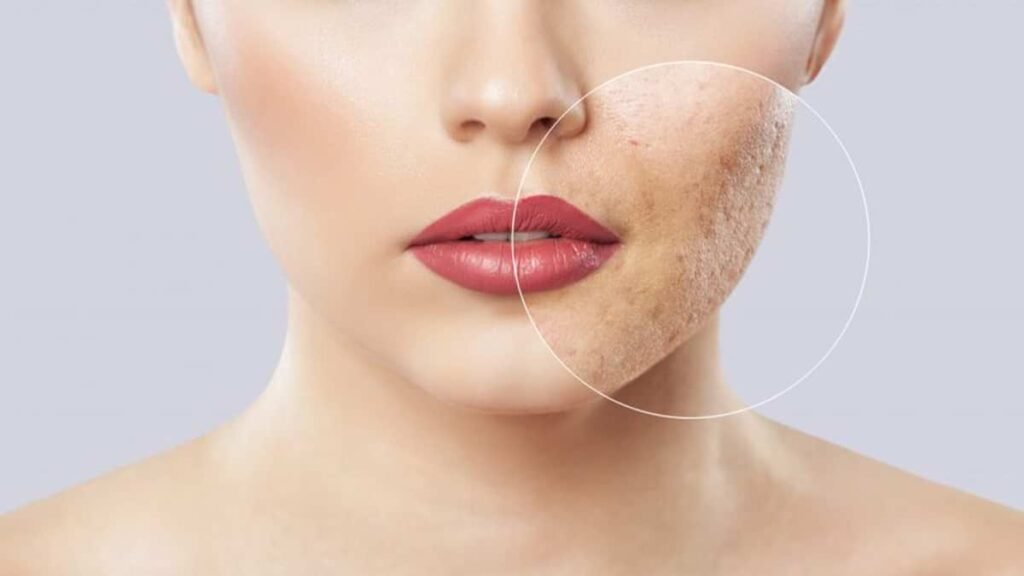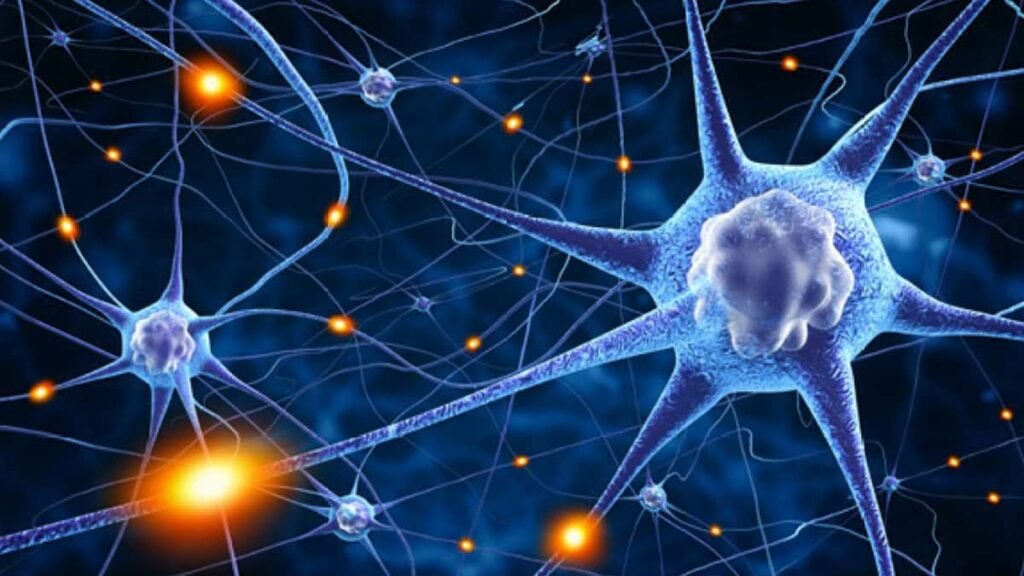turmeric Anti-Aging effects
Top #7 Turmeric: Anti-Aging effects If curcumin can really help prevent heart disease, cancer and Alzheimer’s, it would


Hemp oil is, as the name suggests, is an essential oil extracted from cannabis (CBD). CBD oil can be used in several ways. Some countries, especially in North America, have understood the potential benefits of this plant. In this article discover 6 amazing effects in your body that could provide you hemp oil.

Anxiety and depression are common mental health disorders that can have devastating impacts on health and well-being.
According to the World Health Organization, depression is the single largest contributor to disability worldwide, while anxiety disorders are ranked sixth (9).
Anxiety and depression are usually treated with pharmaceutical drugs, which can cause a number of side effects including drowsiness, agitation, insomnia, sexual dysfunction and headache (10Trusted Source).
What’s more, medications like benzodiazepines can be addictive and may lead to substance abuse (11Trusted Source).
CBD oil has shown promise as a treatment for both depression and anxiety, leading many who live with these disorders to become interested in this natural approach.
In one Brazilian study, 57 men received either oral CBD or a placebo 90 minutes before they underwent a simulated public speaking test. The researchers found that a 300-mg dose of CBD was the most effective at significantly reducing anxiety during the test.
The placebo, a 150-mg dose of CBD, and a 600-mg dose of CBD had little to no effect on anxiety (12Trusted Source).
CBD oil has even been used to safely treat insomnia and anxiety in children with post-traumatic stress disorder (13Trusted Source).
CBD has also shown antidepressant-like effects in several animal studies (14Trusted Source, 15Trusted Source).
These qualities are linked to CBD’s ability to act on the brain’s receptors for serotonin, a neurotransmitter that regulates mood and social behavior.
Good to know: Using CBD has been shown
to reduce anxiety and depression in both human and animal studies.

Marijuana has been used to treat pain as far back as 2900 B.C. (2Trusted Source).
More recently, scientists have discovered that certain components of marijuana, including CBD, are responsible for its pain-relieving effects.
The human body contains a specialized system called the endocannabinoid system (ECS), which is involved in regulating a variety of functions including sleep, appetite, pain and immune system response (3Trusted Source).
The body produces endocannabinoids, which are neurotransmitters that bind to cannabinoid receptors in your nervous system.
Studies have shown that CBD may help reduce chronic pain by impacting endocannabinoid receptor activity, reducing inflammation and interacting with neurotransmitters (4Trusted Source).
For example, one study in rats found that CBD injections reduced pain response to surgical incision, while another rat study found that oral CBD treatment significantly reduced sciatic nerve pain and inflammation (5Trusted Source, 6Trusted Source).
Several human studies have found that a combination of CBD and THC is effective in treating pain related to multiple sclerosis and arthritis.
An oral spray called Sativex, which is a combination of THC and CBD, is approved in several countries to treat pain related to multiple sclerosis.
One study of 47 people with multiple sclerosis examined the effects of taking Sativex for one month. The participants experienced improvements in pain, walking, and muscle spasms. Still, the study didn’t include any control group and placebo effects cannot be ruled out (7Trusted Source).
Another study found that Sativex significantly improved pain during movement, pain at rest and sleep quality in 58 people with rheumatoid arthritis (8Trusted Source).
Good to know: Summary CBD, especially in
combination with THC, may be effective in reducing pain associated with
diseases like multiple sclerosis and rheumatoid arthritis.

CBD may help reduce symptoms related to cancer and side effects related to cancer treatment, like nausea, vomiting and pain.
One study looked at the effects of CBD and THC in 177 people with cancer-related pain who did not experience relief from pain medication.
Those treated with an extract containing both compounds experienced a significant reduction in pain compared to those who received only THC extract (16Trusted Source).
CBD may also help reduce chemotherapy-induced nausea and vomiting, which are among the most common chemotherapy-related side effects for those with cancer (17Trusted Source).
Though there are drugs that help with these distressing symptoms, they are sometimes ineffective, leading some people to seek alternatives.
A study of 16 people undergoing chemotherapy found that a one-to-one combination of CBD and THC administered via mouth spray reduced chemotherapy-related nausea and vomiting better than standard treatment alone (18Trusted Source).
Some test-tube and animal studies have even shown that CBD may have anticancer properties. For example, one test-tube study found that concentrated CBD induced cell death in human breast cancer cells (19Trusted Source).
Another study showed that CBD inhibited the spread of aggressive breast cancer cells in mice (20Trusted Source).
However, these are test-tube and animal studies, so they can only suggest what might work in people. More studies in humans are needed before conclusions can be made.

Acne is a common skin condition that affects more than 9% of the population (21Trusted Source).
It is thought to be caused by a number of factors, including genetics, bacteria, underlying inflammation and the overproduction of sebum, an oily secretion made by sebaceous glands in the skin (22Trusted Source, 23).
Based on recent scientific studies, CBD oil may help treat acne due to its anti-inflammatory properties and ability to reduce sebum production.
One test-tube study found that CBD oil prevented sebaceous gland cells from secreting excessive sebum, exerted anti-inflammatory actions and prevented the activation of “pro-acne” agents like inflammatory cytokines (24Trusted Source).
Another study had similar findings, concluding that CBD may be an efficient and safe way to treat acne, thanks in part to its remarkable anti-inflammatory qualities (25Trusted Source).
Though these results are promising, human studies exploring the effects of CBD on acne are needed.

Researchers believe that CBD’s ability to act on the endocannabinoid system and other brain signaling systems may provide benefits for those with neurological disorders.
In fact, one of the most studied uses for CBD is in treating neurological disorders like epilepsy and multiple sclerosis. Though research in this area is still relatively new, several studies have shown promising results.
Sativex, an oral spray consisting of CBD and THC, has been proven to be a safe and effective way to reduce muscle spasticity in people with multiple sclerosis.
One study found that Sativex reduced spasms in 75% of 276 people with multiple sclerosis who were experiencing muscle spasticity that was resistant to medications (26Trusted Source).
Another study gave 214 people with severe epilepsy 0.9–2.3 grams of CBD oil per pound (2–5 g/kg) of body weight. Their seizures reduced by a median of 36.5% (27Trusted Source).
One more study found that CBD oil significantly reduced seizure activity in children with Dravet syndrome, a complex childhood epilepsy disorder, compared to a placebo (28Trusted Source).
However, it’s important to note that some people in both these studies experienced adverse reactions associated with CBD treatment, such as convulsions, fever and fatigue.
CBD has also been researched for its potential effectiveness in treating several other neurological diseases.
For example, several studies have shown that treatment with CBD improved quality of life and sleep quality for people with Parkinson’s disease (29Trusted Source, 30Trusted Source).
Additionally, animal and test-tube studies have shown that CBD may decrease inflammation and help prevent the neurodegeneration associated with Alzheimer’s disease (31Trusted Source).
In one long-term study, researchers gave CBD to mice genetically predisposed to Alzheimer’s disease, finding that it helped prevent cognitive decline (32Trusted Source).

Recent research has linked CBD with several benefits for the heart and circulatory system, including the ability to lower high blood pressure.
High blood pressure is linked to higher risks of a number of health conditions, including stroke, heart attack and metabolic syndrome (33Trusted Source).
Studies indicate that CBD may be able to help with high blood pressure.
One recent study treated nine healthy men with one dose of 600 mg of CBD oil and found it reduced resting blood pressure, compared to a placebo.
The same study also gave the men stress tests that normally increase blood pressure. Interestingly, the single dose of CBD led the men to experience a smaller blood pressure increase than normal in response to these tests (34Trusted Source).
Researchers have suggested that the stress- and anxiety-reducing properties of CBD are responsible for its ability to help lower blood pressure.
Additionally, several animal studies have demonstrated that CBD may help reduce the inflammation and cell death associated with heart disease due to its powerful antioxidant and stress-reducing properties.
For example, one study found that treatment with CBD reduced oxidative stress and prevented heart damage in diabetic mice with heart disease (35Trusted Source).
Top #7 Turmeric: Anti-Aging effects If curcumin can really help prevent heart disease, cancer and Alzheimer’s, it would
Top #6 Arthritis Patients Respond Very Well to Turmeric Supplements Share on facebook Share on twitter Share on
Top #5 Improved Antioxidant Capacity Share on facebook Share on twitter Share on pinterest Share on email Antioxidants
Top #4 Turmeric could Be Useful in Preventing and Treating Alzheimer’s Disease Share on facebook Share on twitter
Top #3 Turmeric Can Help Prevent (And Perhaps Even Treat) Cancer Share on facebook Share on twitter Share
Top #2 Turmeric Lowers Your Risk of Heart Disease Share on facebook Share on twitter Share on pinterest
Statements on this website have not been evaluated by the Food and Drug Administration. Products are not intended to diagnose, treat, cure or prevent any disease. If you are pregnant, nursing, taking medication, or have a medical condition, consult your physician before using our products.
Disclaimer: this site is not a part of the Facebook™ website or Facebook Inc. Additionally, this site is NOT endorsed by Facebook™ in any way. FACEBOOK is a trademark of FACEBOOK, Inc.

Your Privacy Is Important To Us
This website uses cookies so that we can provide you with the best user experience possible. Cookie information is stored in your browser and performs functions such as recognising you when you return to our website and helping our team to understand which sections of the website you find most interesting and useful.
Strictly Necessary Cookie should be enabled at all times so that we can save your preferences for cookie settings.
If you disable this cookie, we will not be able to save your preferences. This means that every time you visit this website you will need to enable or disable cookies again.
More information about our Cookie Policy